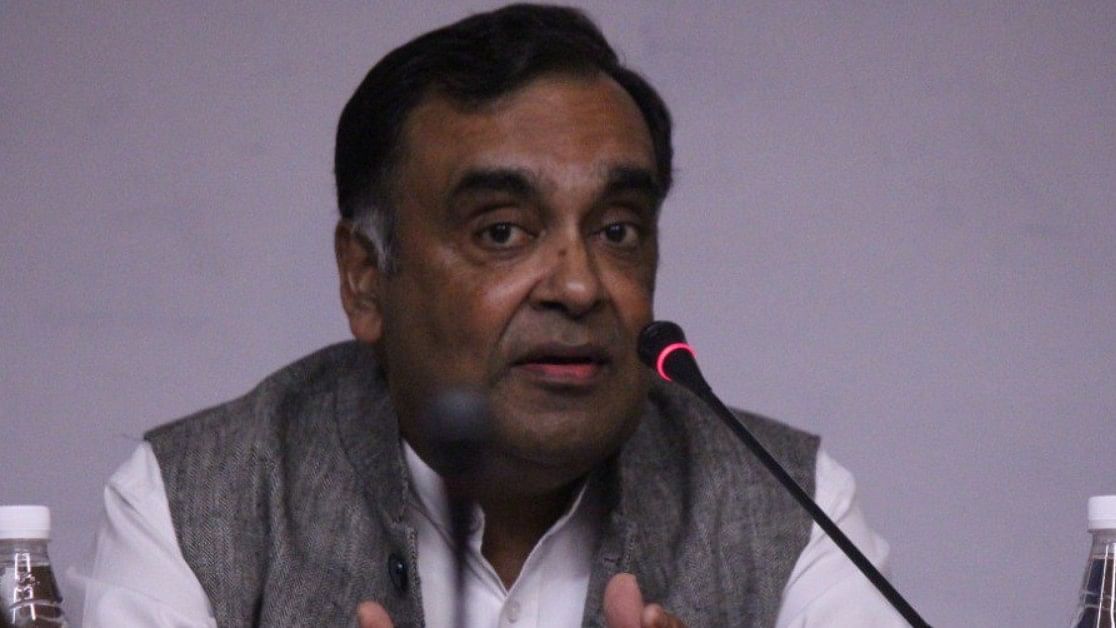
Yashvardhan Kumar Sinha.
Credit: X/ @globalyouthind
The Right to Information Act has become a people's movement with a large number of them seeking information of public interest and getting replies, Chief Information Commissioner Yashvardhan Kumar Sinha said, hailing the ground-breaking law enacted in 2005.
"No country can boast of such a large number of applications being filed and such a large number of replies being given", Sinha said Thursday in an interaction with PTI on the sidelines of an event here.
He was in the state capital to attend the inaugural session of the two-day-long national meet 'National Meet of RTI Act' organised by the Standing Conference of Public Enterprises, or SCOPE.
"I think India fares very well, because (of) the sheer scale, no country can boast of such a large number of applications being filed, such a large number of replies being given, second appeal. We are the most populous country in the world, but the population is not enough. You have other countries which are highly populated, but they don't have the Act", the CIC said.
Sinha said that since the initial days of its enactment, the RTI Act has come a long way, but there are still shortcomings.
"Obviously, there are lacunae and drawbacks, which need to be addressed, but there is a process, which is already underway, and hopefully with time and with experience, and the experience of how the Act is implemented, things will become better", he said.
Asked to comment on his journey from a diplomat to an Information Commissioner and then becoming a Chief Information Commissioner, Sinha said, "People have asked me this question before. We do not have too many people from foreign service becoming information commissioners" as he cited the example of former Information Commissioner Sharat Sabharwal and former Mizoram CIC Lalduhthlana Ralte.
"In diplomacy, when you are a diplomat you develop certain qualities -- patience, listening to the other person, tact … I am not sure whether I have those qualities, but I tried to inculcate them, and it has stood me in good stead in my job first as an IC and then as a CIC", he said.
When asked about 'RTI activism,' Sinha asserted activists also are citizens of India and have as much as right as anyone to seek accountability through the Act.
"Activism is not a bad thing per se, because it helps in interaction between the civil society and the government. The problem arises when there is a misuse or a particular ulterior motive.
"I have personally benefited from interaction with the civil society, who even suggest ways to improve the implementation of the Act, which is always welcome. Because, after all, they also represent the citizens. So it is important", he said.
Sinha, a former High Commissioner of India to the United Kingdom, said he learnt a lot from his stint in the country, which has its own Freedom of Information Act.
"So the Indian Act in itself is very, very comprehensive, very good. We have a National Federation of Information Commissions of India, and it is a registered body. And interactions among various commissions help our own work".
"Similarly, internationally, you have an international association, and India is not a member as of now", he said.
He also mentioned his decision to allow candidates to see their OMR sheets, upholding the right of the exam taker to know his or her marks.
Sinha also said the commission cannot debar someone who files an RTI plea frequently and causing a glut in the information supply, adding, the apex court, as well as several high courts, have in the past tried to address to issue.
"Frankly the Act is silent, and you cannot debar someone from filing an application … How we have done it, is by clubbing together large numbers and disposing them of with or without a hearing, normally with a hearing. Each commissioner/commission has a way of addressing these issues, but it is a problem, which needs to be addressed", he said.